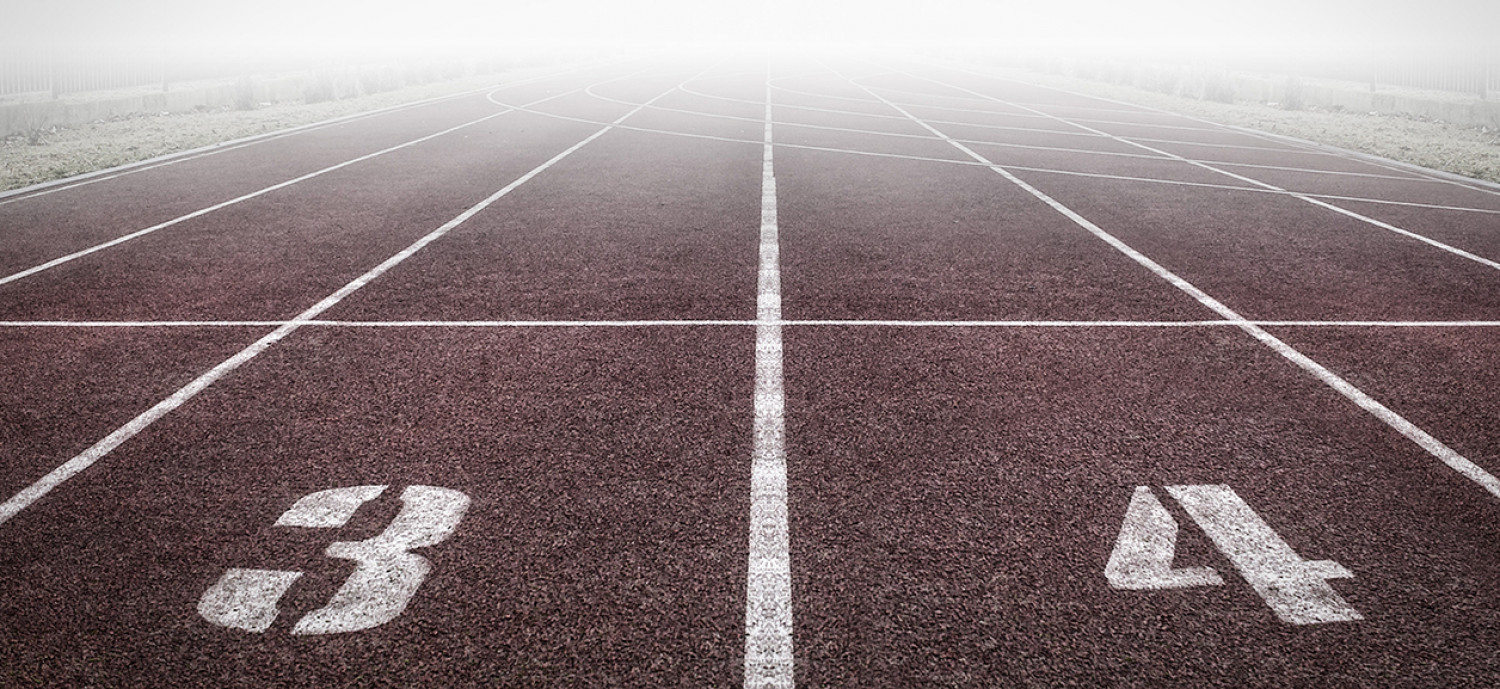Race Day Nerves and Anxiety

Have you ever experienced negative thoughts and/or anxiety prior to your big race? Wondering why you’ve even agreed to run the race yet when you cross that finish line you can’t wait to do it again. This is something many runners experience and can negatively effect your performances. It can eliminate the fun all together. So why do runners experience these feelings?
Pre race anxiety is caused by uncertainty surrounding an event such as weather, course, and performance. By a fear of our reaction to that unknown. Those nerves are often created by a fixation on the outcome or possibly social embarrassment. Pre-race anxiety triggers a fight, flight, or freeze response. Your pulse increases and blood moves from your stomach to your heart and lungs, which produces nausea and impairs digestion. This is something even elite athletes experience and is the explanation for those long pre-race porta-potty lines. Beyond the fear response, anxiety also causes your mood to plummet. If you spend too much time in this anxious state of mind, it has the power to negatively impact both your enjoyment and performance. Runners looking for a quick anxiety fix are going to turn up empty handed. Similar to shortcutting a training plan, a few deep breaths here and there are going to do little to keep those pre-race nerves in check.
Luckily, there are several effective methods for controlling these feelings that just might make you calmer pre-race and in all aspects of life. These tips can have a significant impact on all runners:
Accept the anxiety:
Not all nerves are bad. You should expect to be at least a little nervous. Anxiety often closes the gap between potential and ability. It's when a runner becomes obsessed with the race outcome and other outside influences that anxiety can become counterproductive. You should cultivate a curiosity about your nerves. Rather than simply enduring the discomfort or attempting to control it. You should explore what is going on and embrace the unknown. Trying to control anxiety produces a rigidity by race day that negatively impacts performance. Instead, pay attention to what exactly is making you feel anxious. Use it as an opportunity to learn more about yourself and discover what is driving those negative feelings.
Be mindful:
You've heard of this term but many people don't actually understand it. Mindfulness is simply the ability to spend a prolonged period of time focused on the present moment. This includes awareness of your thoughts, emotions, body, and environment. The most important thing to know is that mindfulness cannot exist in the presence of sound. Sound is what other people think of us, anxiety, self-criticism, and a fixation on a particular finishing time, which all draw us out of the present moment. Mindfulness is a skill which means it takes practice to achieve and maintain the ability to truly tune in. Similar to the commitment we make to achieving faster leg turnover or relaxing our shoulders, spending more time in the present moment boosts confidence, optimism, and calm emotions.
Visualization:
Using visualization really can improve athletic performance. It is effective because it activates the same pathways in the brain that are fired up when you're actually doing the activity. So when you thoroughly visualize yourself having a terrific race, that helps train your body to execute what you've imagined. Visualize the entire process from approaching the start line to navigating potentially difficult moments, like hitting a rough patch. Contrary to what you may believe, it shouldn't all go perfectly in your head. Spend most of the time visualizing success with a great stride, favorable conditions, confidence while also spending some time imagining unpredictable and unfavorable conditions, like overwhelming anxiety at the start line, pains, or fatigue.
Self Talk:
People believe that confidence comes from past success but that isn't always true. Confidence comes from what you say to yourself everyday. What you say to yourself is either building confidence or destroying it. Become aware when you are engaging in negative self-talk, which only serves to leak energy and decrease your confidence. Believing what is possible is the essence of self-talk. It might sound overly simple, but the idea is that, over time, the dialogue you have with yourself as a runner and as a person will shift from what you think. The fact of the matter is that positive self-talk statements are more productive and improve efficiency.
Rituals:
Create rituals in the final days leading up to an event that focus on self-care and being prepared. You can expect nerves to surface a few days before an event. It helps to have activities planned to manage them. Schedule a massage, go to the movies, enjoy special dinners, watch your favorite shows. In other words, slow down, reduce external stressors, and spoil yourself. All runners have trouble sleeping the night before an event. That's why you should prioritize sleep a few nights before a race to achieve good sleep before race day. Create a bedtime ritual with tea and a great book or magazine to help sleep, and store electronics in another room. Block off these nights on your calendar as a reminder. Also, plan to have your food planned out 4-5 days before an event, based on well-known meals, and to make sure fuel and hydration choices have been finalized and purchased. Don't try any new foods in the days before a race or on race day. Lay out all personal items and clothing a full day before the race to eliminate any sort of last minute scramble. Being thoroughly prepared in the days leading up to a race puts you in a better place to control anxiety rather than feeling out of control.